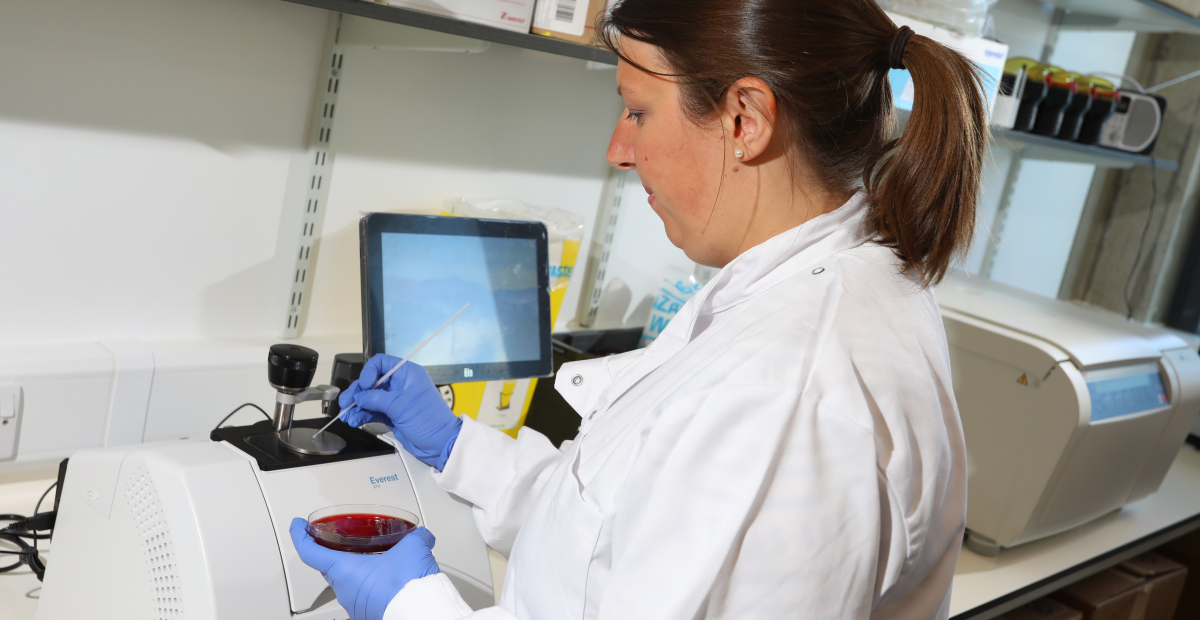Project
The Microbira project supports new artificial intelligence techniques to diagnose infection and improve patient outcomes.
The system uses artificial intelligence (AI) to quickly detect and identify infective microorganisms such as bacteria and clinical yeasts which cause human infection and disease.
Examples include E. coli o157 which can cause outbreaks of sickness after consumption of contaminated food/water, Staphylococcus aureus which is responsible for skin and tissue infections and Streptococcus A, which causes scarlet fever and candida which can cause fungal infections.
The cloud-based software creates a rapid, low cost invitro diagnostic (IVD) tool for clinical and research use by marrying artificial intelligence (AI) and Fourier Transform Infrared (FTIR) spectroscopy to create a ‘whole organism fingerprint’ which is unique to each microorganism.
The system can be used by microbiologists in hospital and food labs, breweries, veterinary practices and universities teaching microbiology. Among its uses is the reduction of the spread of drug resistance by identification and surveillance.
Infrared spectral profiling is sustainable as it doesn’t use chemicals and enables fast and accurate identification of infections which in turn optimises prescribing of antibiotics.
How the lab helped
We supported further development of the Microbira system.
In collaboration with the microbiology department at Newcastle Hospitals, our work has focused on expanding the system’s database by providing over 500 isolates of reference micro-organisms.
The labs ensure that the organisms are prepared and cultured under controlled conditions and the spectra the teams create are used for data analysis to optimise the Microbira predictive software.
The innovation lab has also advised on a practical level on possible costing mechanisms and lab workflows, giving the client information on how their process could be used in the ‘real world’. The team also gave input on the best way to present the results so they can be used in the most effective way by clinicians, food scientists and researchers.
Outcome
Our work is helping to create and establish a reliable data base and predictive algorithms which will give microbiological clinicians simple technology to identify the top ten micro-organisms they are likely to find infecting a patient.
Marianne Ismail, chief executive officer of Microbira Ltd, said: “The innovation lab didn’t just provide a database service which is critical for the whole process, the team gave us practical advice on the use of our system.
“The lab has joined the dots as it is difficult from an innovative science company perspective to obtain independent product evaluation for potential users. The team has advised on how a user would expect to see the identification results presented. Their input has been invaluable.”
The system, believed to be the first of its kind developed for commercial use with a UKCA mark, is launching in the spring and we have been asked to continue the collaboration towards future development and automation of the process.

